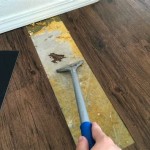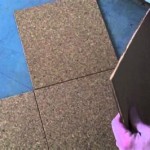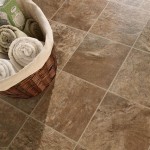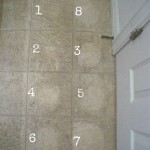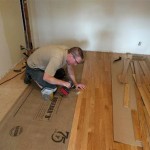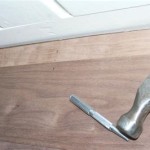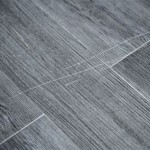Rubber Flooring for Utility Trailers: Enhancing Durability and Safety
Utility trailers serve as versatile tools for hauling a wide range of materials, from landscaping supplies to construction equipment. The flooring of these trailers is subject to significant wear and tear, making the choice of material crucial for longevity and performance. Rubber flooring has emerged as a popular and effective option for utility trailers, offering numerous advantages over traditional wood or metal surfaces. This article explores the benefits, types, installation considerations, and maintenance aspects of rubber flooring for utility trailers, providing a comprehensive overview for trailer owners and operators.
Key Benefits of Rubber Flooring
Rubber flooring provides a multitude of benefits that contribute to the overall performance and lifespan of a utility trailer. These advantages extend beyond simple aesthetics and directly impact the functionality and safety of the trailer during operation.
Durability and Impact Resistance: Rubber is inherently durable and resistant to impact, making it well-suited for the demands of a utility trailer. Unlike wood, rubber will not rot, splinter, or warp when exposed to moisture or the elements. Compared to metal, rubber offers better shock absorption, preventing damage to the trailer bed and the cargo being transported. This impact resistance is particularly important when hauling heavy or irregularly shaped items that can shift during transit.
Enhanced Safety and Traction: The textured surface of rubber flooring provides excellent traction, even in wet or muddy conditions. This improved grip reduces the risk of cargo shifting during transport and minimizes the potential for slips and falls when loading or unloading. The non-slip properties of rubber are crucial for maintaining a safe working environment, especially when dealing with heavy equipment or livestock.
Noise Reduction and Vibration Dampening: Rubber flooring effectively dampens vibrations and reduces noise levels within the trailer. This is particularly beneficial when hauling equipment or materials that can generate significant noise during transit. The noise reduction can also contribute to a more comfortable and less stressful towing experience. The vibration-dampening properties help protect the trailer frame and cargo from potential damage caused by constant shaking and movement.
Ease of Cleaning and Maintenance: Rubber flooring is relatively easy to clean and maintain, requiring minimal effort to keep it in good condition. Most spills and debris can be easily removed with a broom, hose, or pressure washer. Unlike wood, rubber does not require sealing or staining. Its non-porous surface resists the absorption of liquids and prevents the growth of mold and mildew. Simple and regular cleaning will extend the lifespan of the rubber flooring and maintain its appearance.
Protection of Trailer Bed: Rubber flooring acts as a protective layer for the underlying trailer bed, shielding it from scratches, dents, and corrosion. This protective barrier helps to preserve the structural integrity of the trailer and extend its overall lifespan. The rubber flooring also provides a cushion that can prevent damage to the trailer bed from the constant impact of heavy cargo.
Types of Rubber Flooring Suitable for Utility Trailers
Several types of rubber flooring are available, each offering unique characteristics and suited for specific applications. Understanding the differences between these options is crucial for selecting the most appropriate flooring for a utility trailer.
Rubber Mats: Rubber mats are a common and versatile option for utility trailers. They are typically made from recycled rubber and come in various thicknesses and sizes. These mats offer good durability, traction, and impact resistance. They are relatively easy to install and can be cut to fit specific trailer dimensions. Rubber mats are a cost-effective solution for protecting the trailer bed and providing a non-slip surface. They are available in different textures, including ribbed, diamond-plate, and smooth.
Rubber Rolls: Rubber rolls provide a seamless flooring solution that covers the entire trailer bed without any gaps or seams. These rolls are typically made from vulcanized rubber and offer excellent durability and water resistance. They are available in various widths and thicknesses, allowing for customization to fit specific trailer dimensions. Rubber rolls are ideal for applications where hygiene and ease of cleaning are paramount. The seamless surface prevents the accumulation of dirt and debris, making it easier to maintain a clean and sanitary environment.
Interlocking Rubber Tiles: Interlocking rubber tiles are a modular flooring system that offers flexibility and ease of installation. These tiles are typically made from recycled rubber and feature interlocking edges that allow them to be easily connected and disconnected. Interlocking rubber tiles are a good option for trailers that require frequent reconfiguration or removal of the flooring. They are also beneficial for applications where specific areas of the trailer bed need to be reinforced or protected. If one tile is damaged, it can be easily replaced without affecting the entire flooring system.
Poured Rubber Flooring: Poured rubber flooring is a seamless, custom-fitted solution that is applied directly to the trailer bed. This type of flooring is typically made from a mixture of recycled rubber granules and a polyurethane binder. Poured rubber flooring offers excellent durability, water resistance, and impact absorption. It can be customized to create various colors, patterns, and textures. Poured rubber flooring is a more expensive option than rubber mats or rolls, but it provides a superior level of protection and a professional, aesthetically pleasing finish. It is typically installed by trained professionals who have the necessary equipment and expertise.
Considerations for Choosing the Right Type: When selecting the appropriate type of rubber flooring, several factors should be considered. These include the type of cargo being transported, the frequency of use, the budget, and the desired level of protection. For light-duty applications, rubber mats may be sufficient. For heavy-duty applications or situations where water resistance is critical, rubber rolls or poured rubber flooring may be more suitable. The ease of installation and maintenance should also be factored into the decision-making process.
Installation and Maintenance of Rubber Flooring
Proper installation and maintenance are essential for maximizing the lifespan and performance of rubber flooring in a utility trailer. Following the manufacturer's instructions and implementing a regular cleaning schedule will help ensure that the flooring remains in good condition and provides the intended benefits.
Installation Process: The installation process will vary depending on the type of rubber flooring selected. Rubber mats can simply be placed on the trailer bed and secured with adhesive or fasteners. Rubber rolls may require cutting and trimming to fit the trailer dimensions, followed by adhesive bonding to the trailer bed. Interlocking rubber tiles can be easily connected and laid out on the trailer bed. Poured rubber flooring requires specialized equipment and expertise and is typically installed by trained professionals. Regardless of the type of flooring, it is important to ensure that the trailer bed is clean, dry, and free of debris before installation. Proper surface preparation will ensure optimal adhesion and prevent premature wear and tear.
Adhesive Considerations: The choice of adhesive is crucial for ensuring a secure and long-lasting bond between the rubber flooring and the trailer bed. Use an adhesive that is specifically designed for bonding rubber to metal or wood. Follow the manufacturer's instructions for application and curing. The adhesive should be water-resistant and able to withstand the temperature fluctuations and vibrations experienced during trailer operation. It is also important to ensure that the adhesive is compatible with the type of rubber flooring being used.
Fastening Options: In addition to adhesive, mechanical fasteners, such as screws or bolts, can be used to secure the rubber flooring to the trailer bed. This is particularly important for heavy-duty applications or in areas where the adhesive bond may be subject to excessive stress. Use fasteners that are appropriate for the type of trailer bed material (e.g., wood or metal) and ensure that they are properly installed to prevent loosening or damage. Countersinking the fasteners will create a flush surface that will minimize the risk of tripping or snagging on the flooring.
Cleaning and Maintenance Routine: Regular cleaning and maintenance are essential for prolonging the lifespan of rubber flooring. Sweep or vacuum the flooring regularly to remove dirt, debris, and loose particles. Mop the flooring with a mild soap and water solution to remove spills and stains. Avoid using harsh chemicals or abrasive cleaners, as these can damage the rubber surface. For stubborn stains, use a specialized rubber cleaner. Pressure washing can be used to remove heavy dirt and debris, but be sure to use a low-pressure setting to avoid damaging the flooring. Inspect the flooring regularly for signs of wear and tear, such as cracks, tears, or loose edges. Repair any damage promptly to prevent further deterioration.
Protecting the Flooring: While rubber flooring is durable, it is still susceptible to damage from sharp objects, chemicals, and excessive weight. Avoid dragging heavy or sharp objects across the flooring. Protect the flooring from spills of oil, gasoline, or other chemicals. Distribute weight evenly across the flooring to prevent localized stress and potential damage. Consider using additional protection, such as plywood or rubber pads, when hauling particularly heavy or abrasive items.

Trailer Flooring Liners Cargo Anti Slip Garage Llc

7 X 14 Rubber Tread Plate Floor Deal Brothers Trailer S Service In Memphis Tn

Trailer Flooring Sports Utility Trailers Enclosed Open

Trailer Flooring Guide

Jacob S Trailer Floor Garageflooringllc Com

Trailer Flooring Sports Utility Trailers Enclosed Open

Rubber Cal Diamond Plate 4 Ft X 8 Black Flooring 32 Sq 03 206 W100 08 The Home Depot

Black Rubber Tread Plate Flooring 28 Per Linear Foot Trailers 2 Go 4 Less

Trailer Mats Custom Cut

Trailer And Modular Flooring Better Life Technology G Floor
Related Posts

